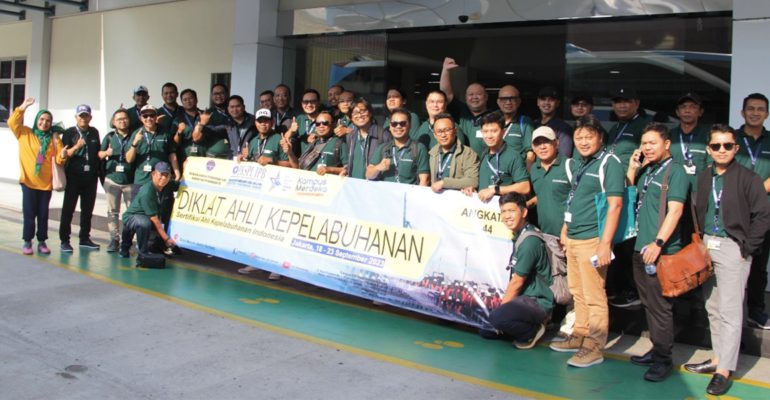PKSPL IPB University and Ministry of Transportation Conduct Port Expert Training Batch 44

The Centre for Coastal and Marine Resources Studies (PKSPL) IPB University together with the Directorate General of Sea Transportation, Ministry of Transportation (Kemenhub) RI continues to enrich the competence of human resources (HR) in the port sector. One of these efforts is through the education and training of port experts batch 44 in Jakarta.
Prof Yonvitner, Head of PKSPL IPB University said that port and logistics are part of the competence of the three mandates of IPB University such as agriculture, marine and biosciences. One of IPB University’s contributions in the maritime sector is by consistently organising port expert training.
“Until now, PKSPL IPB University has graduated more than 1,500 alumni who are competent and certified in operating ports in accordance with Government Regulation (PP) No 61 of 2009,” he said.
According to Prof Yonvitner, human resources are an important asset in building the Indonesian economy. Human resources and natural resources are two important components in life. It even determines whether a country will progress or not. If the two are not in line, it will result in the deterioration of state life.
“From these conditions, enrichment of competence and understanding in the maritime sector is important. Through this Port Expert Training, PKSPL IPB University prepares transportation human resources to answer maritime challenges in the future. We hope that after this training, the participants can e the information and knowledge gained, so that there is a transformation of human resources in the port environment,” he said.
Meanwhile, the Head of the Sub-Directorate General of Sea Transportation of the Ministry of Transportation, Capt Renaldo, welcomed the training. He said, “I hope this activity can provide real benefits for the development of quality sea transportation human resources, especially in the port sector for the implementation of a reliable, competitive port system, and able to adapt quickly to the times.”
He hopes that this training can produce recommendations that answer the problems that occur in the regions and the centre, covering national geopolitics and minimising the regulation gap. This is for the realisation of national development in the maritime sector, especially sea transport and logistics.
“It cannot be denied that the HR element is the most important thing in implementing government policies in realising the maritime axis and transformation in the port sector,” he concluded. (RAR/Rz) (IAAS/MKY)


